Related Research Articles
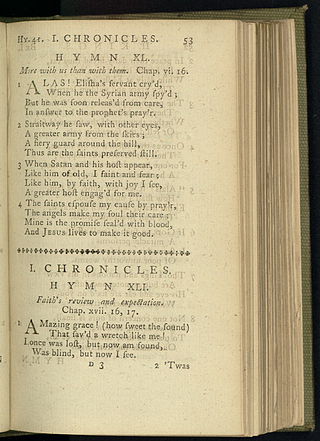
"Amazing Grace" is a Christian hymn published in 1779 with words written in 1772 by English Anglican clergyman and poet John Newton (1725–1807). It is an immensely popular hymn, particularly in the United States, where it is used for both religious and secular purposes.

Alexander Selkirk was a Scottish privateer and Royal Navy officer who spent four years and four months as a castaway (1704–1709) after being marooned by his captain, initially at his request, on an uninhabited island in the South Pacific Ocean. He survived that ordeal but died from tropical illness years later while serving as a Lieutenant aboard HMS Weymouth off West Africa.

Boudica or Boudicca was a queen of the ancient British Iceni tribe, who led a failed uprising against the conquering forces of the Roman Empire in AD 60 or 61. She is considered a British national heroine and a symbol of the struggle for justice and independence.
The Olney Hymns were first published in February 1779 and are the combined work of curate John Newton (1725–1807) and his poet friend William Cowper (1731–1800). The hymns were written for use in Newton's rural parish, which was made up of relatively poor and uneducated followers. The Olney Hymns are an illustration of the potent ideologies of the Evangelical movement, to which both men belonged, present in many communities in England at the time.
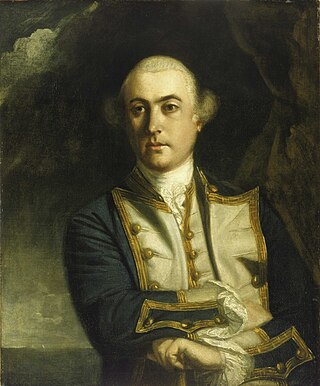
Vice-Admiral John Byron was a British Royal Navy officer and explorer. He earned the nickname "Foul-Weather Jack" in the press because of his frequent encounters with bad weather at sea. As a midshipman, he sailed in the squadron under George Anson on his voyage around the world, though Byron's ship, HMS Wager, made it only to southern Chile, where it was wrecked. He returned to England with the captain of the ship. He was governor of Newfoundland following Hugh Palliser, who left in 1768. He circumnavigated the world as a commodore with his own squadron in 1764–1766. He fought in battles in the Seven Years' War and the American Revolution. He rose to Vice Admiral of the White before his death in 1786.

Robinson Crusoe is a novel by Daniel Defoe, first published on 25 April 1719. The first edition credited the work's protagonist Robinson Crusoe as its author, leading many readers to believe he was a real person and the book a travelogue of true incidents.

William Cowper was an English poet and Anglican hymnwriter.
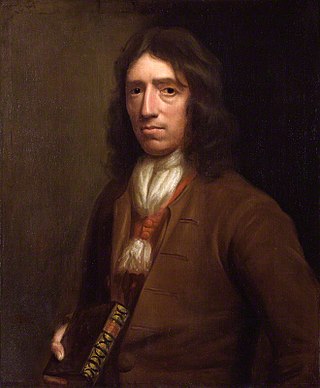
William Dampier was an English explorer, pirate, privateer, navigator, and naturalist who became the first Englishman to explore parts of what is today Australia, and the first person to circumnavigate the world three times. He has also been described as Australia's first natural historian, as well as one of the most important British explorers of the period between Sir Francis Drake and Captain James Cook ; he "bridged those two eras" with a mix of piratical derring-do of the former and scientific inquiry of the latter. His expeditions were among the first to identify and name a number of plants, animals, foods, and cooking techniques for a European audience, being among the first English writers to use words such as avocado, barbecue, and chopsticks. In describing the preparation of avocados, he was the first European to describe the making of guacamole, named the breadfruit plant, and made frequent documentation of the taste of numerous foods foreign to the European palate such as flamingo and manatee.

Bilbo's Last Song is a poem by J. R. R. Tolkien, written as a pendant to his fantasy The Lord of the Rings. It was first published in a Dutch translation in 1973, subsequently appearing in English on posters in 1974 and as a picture-book in 1990. It was illustrated by Pauline Baynes, and set to music by Donald Swann and Stephen Oliver. The poem's copyright was owned by Tolkien's secretary, to whom he gave it in gratitude for her work for him.
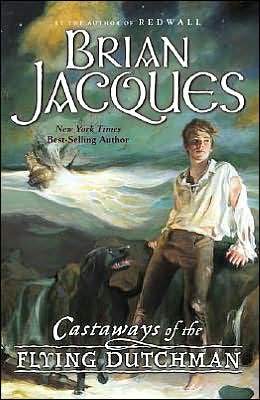
Castaways of the Flying Dutchman is the first novel in the Castaways series by Brian Jacques and was published in 2001. It is based on the legend of the cursed ship known as the Flying Dutchman. A young boy, Nebuchadnezzar, and his dog, Denmark, are the lone survivors of the Flying Dutchman, fated to wander the earth forever immortal and youthful, helping those who need aid.
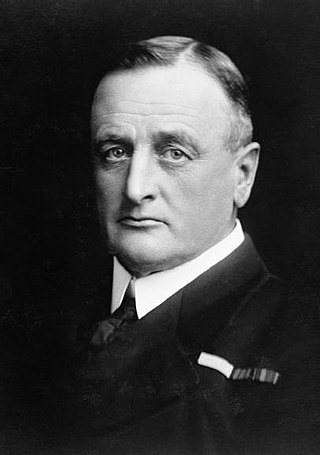
Captain Edward Unwin, was a Royal Navy officer and an English recipient of the Victoria Cross, the highest award for gallantry in the face of the enemy that can be awarded to British and Commonwealth forces.

Childe Harold's Pilgrimage is a long narrative poem in four parts written by Lord Byron. The poem was published between 1812 and 1818. Dedicated to "Ianthe", it describes the travels and reflections of a world-weary young man, who is disillusioned with a life of pleasure and revelry and looks for distraction in foreign lands. In a wider sense, it is an expression of the melancholy and disillusionment felt by a generation weary of the wars of the post-Revolutionary and Napoleonic eras. The title comes from the term childe, a medieval title for a young man who was a candidate for knighthood.
"Stopping by Woods on a Snowy Evening" is a poem by Robert Frost, written in 1922, and published in 1923 in his New Hampshire volume. Imagery, personification, and repetition are prominent in the work. In a letter to Louis Untermeyer, Frost called it "my best bid for remembrance".
Thomas Yalden was an English poet and translator. Educated at Magdalen College, Yalden entered the Church of England, in which he obtained various preferments. His poems include A Hymn to Darkness, Pindaric Odes, and translations from the classics.

The Survivors of the Chancellor: Diary of J. R. Kazallon, Passenger is an 1875 novel written by Jules Verne about the final voyage of a British sailing ship, the Chancellor, told from the perspective of one of its passengers.
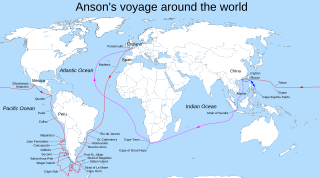
While Great Britain was fighting the War of Jenkins' Ear with Spain in 1740, Commodore George Anson led a squadron of eight ships on a mission to disrupt or capture the Pacific Ocean possessions of the Spanish Empire. Returning to Britain in 1744 by way of China and thus completing a circumnavigation of the globe, the voyage was notable for the capture of the Manila galleon, but also for horrific losses from disease with only 188 men of the original 1,854 surviving. An account of the voyage was published in 1748 which being widely read by the general public was a great commercial success and "is still esteemed as the story of a remarkable voyage extremely well told."
Frost at Midnight is a poem by Samuel Taylor Coleridge, written in February 1798. Part of the conversation poems, the poem discusses Coleridge's childhood experience in a negative manner and emphasizes the need to be raised in the countryside. The poem expresses hope that Coleridge's son, Hartley, would be able to experience a childhood that his father could not and become a true "child of nature". The view of nature within the poem has a strong Christian element in that Coleridge believed that nature represents a physical presence of God's word and that the poem is steeped in Coleridge's understanding of Neoplatonism. Frost at Midnight has been well received by critics, and is seen as the best of the conversation poems.

Mary Unwin (1724–1796) was a British woman, notable as a friend of William Cowper, one of the most popular poets of their day.
José Salvador Alvarenga is a Salvadoran fisherman and author who was found on January 30, 2014, aged 36 or 37, on the Marshall Islands after spending 14 months adrift in a fishing boat in the Pacific Ocean beginning on November 17, 2012. He survived mainly on a diet of raw fish, turtles, small birds, sharks and rainwater. He swam to shore at Tile Islet, a small island that is part of Ebon Atoll, on January 30. Two locals, Emi Libokmeto and Russel Laikidrik, found him naked, clutching a knife and shouting in Spanish. He was treated in a hospital in Majuro before flying to his family home in El Salvador on February 10.
John Johnson was a Church of England clergyman, poet, and editor, a cousin and friend of William Cowper, who lived with Johnson in his declining years.
References
- 1 2 "William Cowper: The Castaway". Vulpes Libris. 2011-05-20. Retrieved 2020-10-25.
- 1 2 "The Castaway by William Cowper". Poetry Foundation. 2020-10-25. Retrieved 2020-10-25.
- ↑ The Handbook to the Lutheran Hymnal, 494